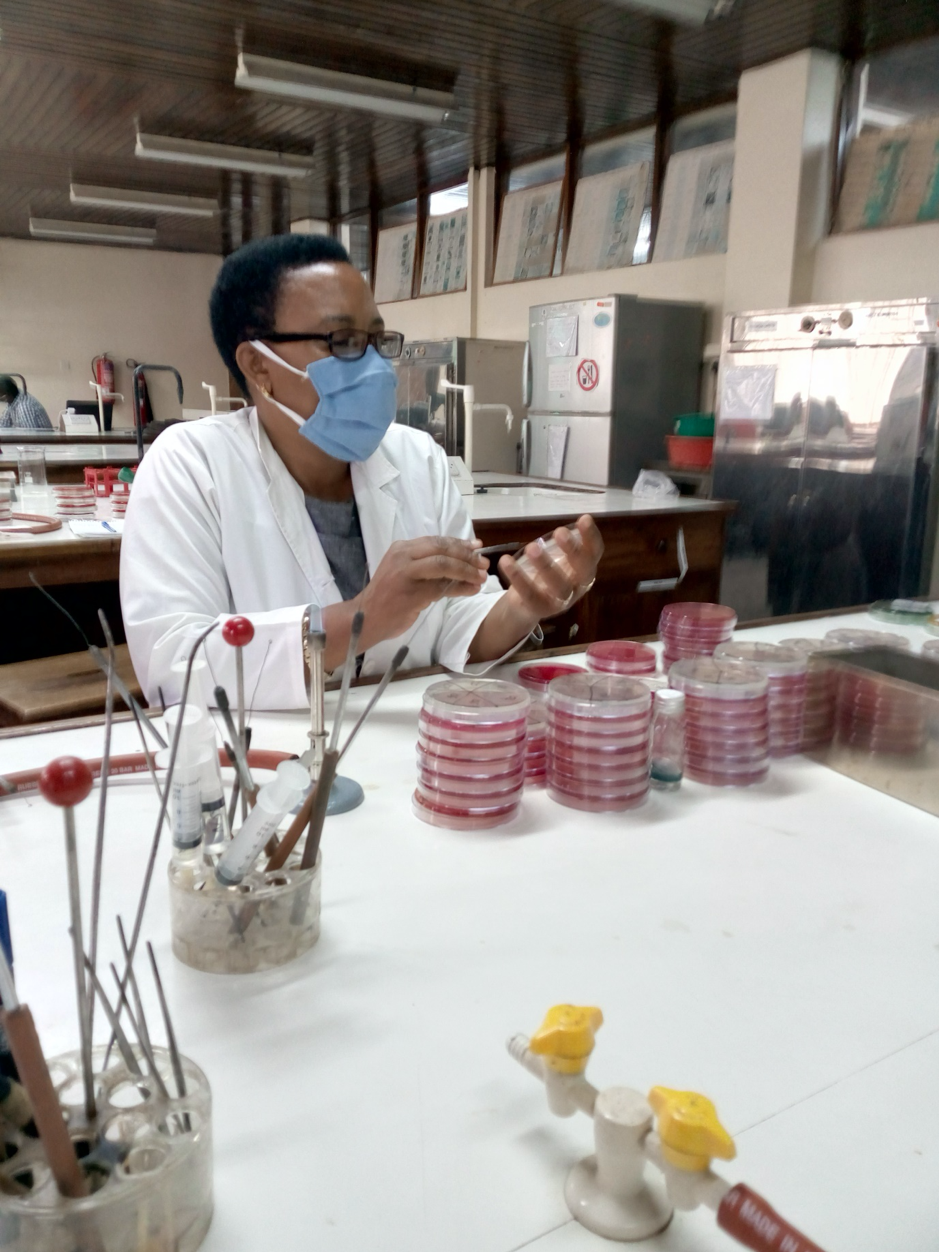SACIDS Africa Centre of Excellence for Infectious Diseases trains young African scientists in research on global health issues: An example of a PhD Student Research on antimicrobial resistance (AMR)
What is the study about?
Antimicrobial resistance (AMR) is currently a global health concern but disproportionately affects developing countries. In these countries, including Tanzania, farming of domestic pigs and poultry involves intense and uncontrolled use of both human and veterinary drugs, which poses a significant threat to the emergence and spread of pathogens that are resistant to the commonly available antimicrobial agents. Such microorganisms are a common cause of both hospital and community infections, which are difficult to treat. The study aims to determine the genomic epidemiology of Multidrug-Resistant (MDR) Escherichia coli in domestic pigs, poultry, fish and the environment and the drivers for antimicrobial use and resistant through (i) collection of surveillance information on the drivers for antimicrobial use and resistance in animal and environment; and (ii) bacterial isolation, antimicrobial susceptibility tests and tests for genetic diversity of MDR E.coli through molecular characterization. The genomic component of the study aims to track the spread of the resistomes.
What is the problem that triggers the conduct of this study?
The demand for food of animal origins in Tanzania has been associated with the intensive farming of domestic pigs and poultry, especially in urban and peri-urban areas. The national projection data shows that annual chicken meat and domestic pig production was to increase from 130,000 tonnes in 2017 to 465 tonnes in 2020 and from 22,000 in 2017 to 37,200 tonnes in 2022, respectively. This increase is linked to the increase in urbanization rate and trading of live animals and animal products.
Often, animals are kept in overcrowded and unhygienic conditions that led to frequent infections. As a result, farmers use antimicrobials for treatment and/or prevention to control diseases and as growth promoters to reduce management costs. The most common antimicrobial classes used included tetracycline, quinolones, sulphonamides, anthelminthic, penicillin and aminoglycosides. The extended use and misuse of antimicrobials in animal farming has been implicated in the occurrence and spread of AMR bacteria in food animals and the environment, with subsequent involvement of humans. There is scarce information on the surveillance and status of antimicrobial usage and resistance in animal production and genetic relatedness of MDR E.coli across domestic pigs, poultry, and the environment in the country.
What is the importance of this research?
Previous studies have revealed that antimicrobial-resistant genes can be transmitted across humans and animals through the environment, which act as a reservoir of resistant genes. Human activities and behaviours that promote transmission of AMR organisms are very high in Tanzania as is the case in many developing countries. Antimicrobial agents, especially in animal farming, are used without any regulation, and often veterinary drugs can be obtained over the counter without advice from veterinary officers. Often, there is misdiagnosis of diseases, improper dosage and lack of implementing the withdrawal period. Unfortunately, the existing veterinary acts and policies are hardly implemented and the protection of environmental contamination is hardly enforced. This scenario provides an avenue for animal farming to be a significant driver of AMR pathogens that can spread through the environment to reach humans.
Read here for more.







